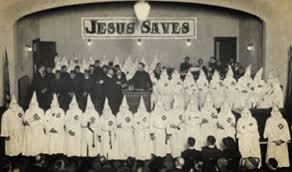 St Alban’s Episcopal Church Bolivar, Missouri Friday, August 18, 2023 Who is in? Who is out? Part 3 Matthew 15: 21-28  Memento Mori Remember that you will die I went for a long walk in Greenwood Cemetery early this cool morning, thinking about this week’s lectionary theme – Who is in? Who is out? And what I realized all over again, is that in the grand scheme of things, everyone is in – and everyone is, or will be, “out.” Nothing lasts forever. No in-group. No excluded one, either. Well, of course, in the ultimate sense, everything does last: Creation itself will be changed, renewed, redeemed, not destroyed. And we ourselves, all of us, will “last” forever with God. But on earth, where we are, nothing lasts, not even memory. There are 19th century graves at Greenwood, untended, apparently forgotten, neglected. I wonder what it cost some of those unknown women and men to leave their homes and families to come to Missouri in the 1800’s – leaving everything behind, to see their hopes dashed or perhaps fulfilled; to lose infant children, to make new lives, likely never see their families back east again. It seems to me important to remember that we too will die. And so will our opinions, prejudices, fears, resentments, and excuses. Now is what we have. And it’s all we’re going to get. And since God welcomes everybody equally, even Gentiles and sinners like us, we ought to probably work a bit more on letting go our reasons for excluding anybody from the circle of our love. God doesn’t. We don’t need to either.  I do not know her story. Probably you don’t, either. But she had one. And it was, in her day, as important as yours, or mine. Did she “belong?” I do not know. But she does now. Matthew 15:21-28 Jesus left that place and went away to the district of Tyre and Sidon. Just then a Canaanite woman from that region came out and started shouting, “Have mercy on me, Lord, Son of David; my daughter is tormented by a demon.” But he did not answer her at all. And his disciples came and urged him, saying, “Send her away, for she keeps shouting after us.” He answered, “I was sent only to the lost sheep of the house of Israel.” But she came and knelt before him, saying, “Lord. help me.” He answered, “It is not fair to take the children’s food and throw it to the dogs.” She said, “Yes, Lord, yet even the dogs eat the crumbs that fall from the master’s table.” Then Jesus answered her, “Woman, great is your faith! Let it be done for you as you wish.” And her daughter was healed instantly.  There are layers and layers to unpack in Sunday’s gospel reading – I will try to do it in my homily. But you do the work, too – the thinking,. the asking. Wondering. Questioning. Who gets left out? And for how long? And how is that overcome? And are the crumbs enough? And look at the image again at the top of the newsletter. It’s a real one.And it occurred within the memory of some among us. How has Jesus been used to support our discrimination, prejudice and hostility – our history of enslavement, segregation and decimation of native peoples? (because he has been so used, you know.) Why are we still okay with excluding and assuming that God judges, people whose conditions and circumstances are not our own? And if the KKK is not as visible now as it once was, its determination to have a pure society purged of “the other” remains and has become more overt, more acceptable. Targets have shifted a bit to include LGBTQ persons as well as Black and Brown people, Jews, and Muslims, now also women, scientists and intellectuals, journalists, judges, even jury members – “liberals.” So how do preachers make those exclusions fit so comfortably within the actual Biblical story? And why?  |

Categories:
Tags:
No responses yet